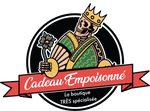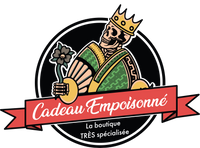The idea of the poisoned gift dates back to ancient times and has been used in various cultures throughout history to express distrust, betrayal or deception. Here are some origins of the poisoned gift, as well as interesting anecdotes linked to this practice:
Greek mythology: One of the first references to the poisoned gift dates back to Greek mythology, with the story of the Trojan horse. According to legend, the Greeks besieged the city of Troy during the Trojan War, but failed to conquer it. They then built a huge wooden horse as an apparent gift to the Trojans, but in reality it was filled with Greek soldiers hidden inside. The Trojans accepted the horse and brought it into their city, allowing the Greek soldiers to come out and take the city
Chinese History: In Chinese history, there are also anecdotes about the use of poisoned gifts for political purposes. For example, during the Han Dynasty, Empress Dowager Liang gave Emperor Wen a poisoned gift in the form of a mirror that was said to have magical powers. The emperor understood that this was a ploy to kill him and refused to accept it, thus saving his life.
European Middle Ages: During the Middle Ages in Europe, poisoning was a common method of eliminating political enemies or rivals. Poisons were often hidden in gifts, such as food, drinks or precious objects, to give to the targeted person. This practice was often used in court intrigues and conflicts between nobles and kingdoms.
Literature and popular culture: The idea of the poisoned gift is also present in many contemporary tales, legends, films, series and books. For example, in the famous fairy tale "Snow White", the evil queen gives Snow White a poisoned apple. In the film "The Lord of the Rings", the character Gollum offers Frodo a poisoned fish. These examples show how the idea of the poisoned chalice continues to be used in popular culture today.
In short, the idea of the poisoned gift dates back to ancient history and has crossed cultures and eras. It has been used to express distrust, betrayal and deception, and continues to fascinate in contemporary literature and popular culture.









